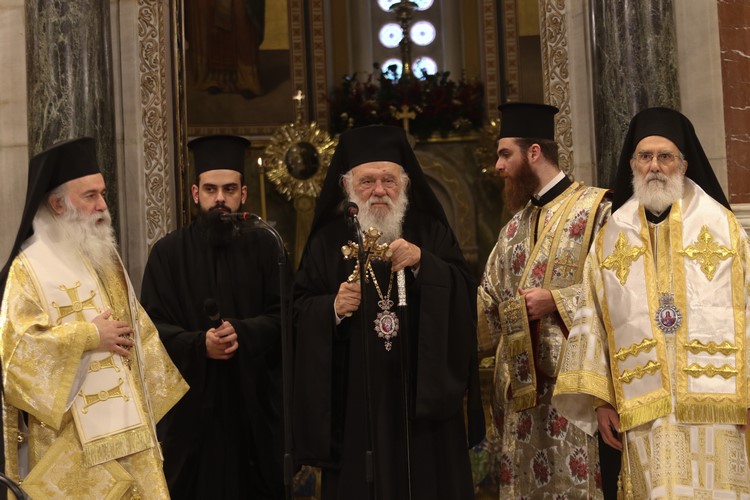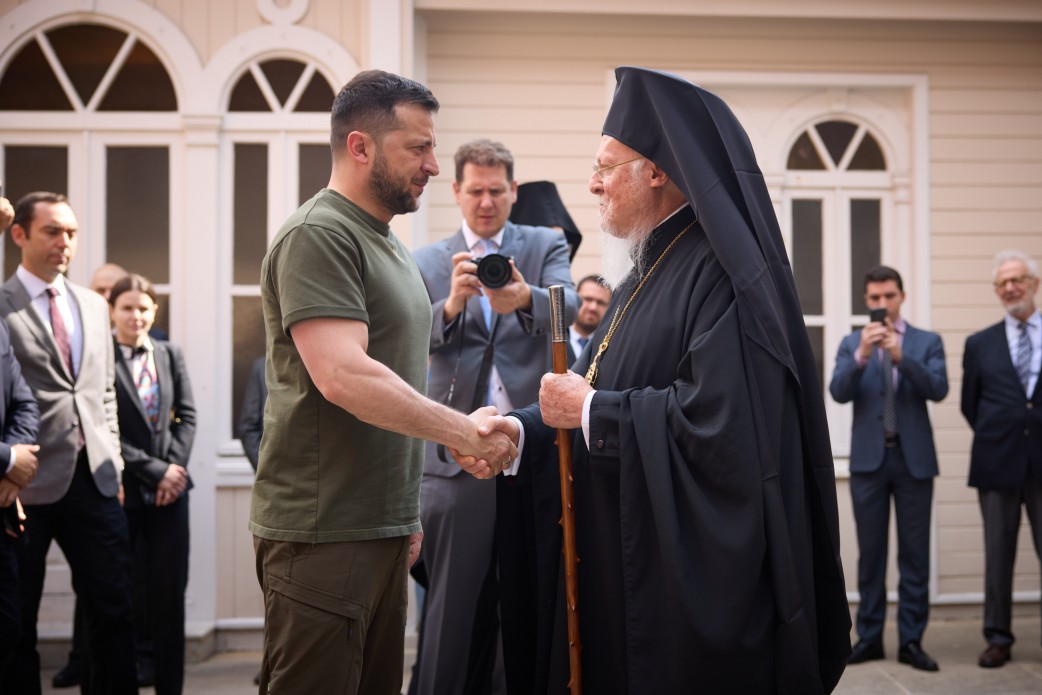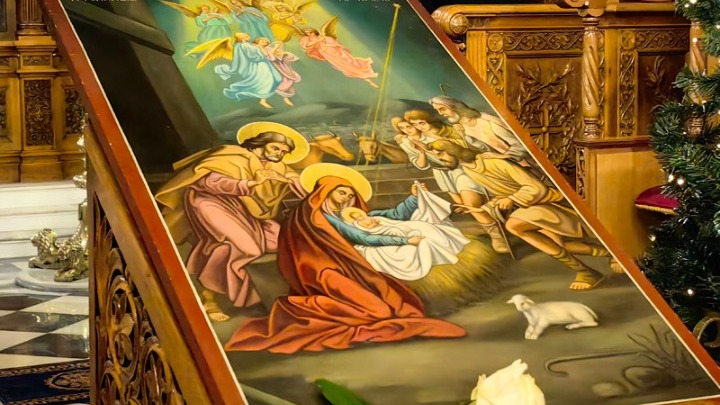Holy Martyrs and Confessors Gurias, Samonas, and Habibus, of Edessa (15 November)
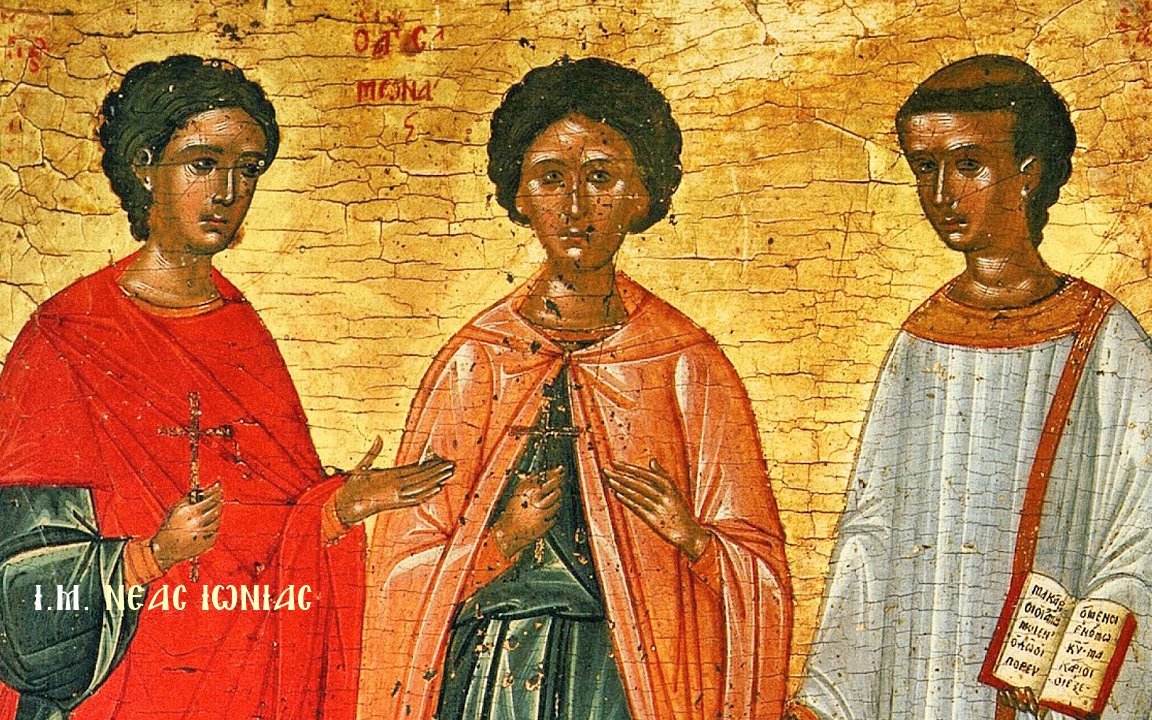

The Holy Martyrs and Confessors Gurias, Samonas and Habibus: during the persecution against Christians under the emperors Diocletian (284-305) and Maximian (305-311). The two friends Gurias and Samonas, preachers of the Word of God, were arrested in the city of Edessa.
The saints refused to offer sacrifice to the gods, and boldly confessed their faith in Christ. For this they were subjected to cruel tortures: they were beaten, hung up by their hands, heavy weights were tied to their feet, and they were cast into a stifling prison.
The martyrs endured everything with firmness and Samonas uttered a prayer to the Lord, which one of the witnesses to their death wrote down: “O Lord my God, against Whose will not a single sparrow falls into the snare. It was You Who made room for David in his sorrow (Ps. 4:1), Who proved the Prophet Daniel stronger than lions (Dan. 6:16-24), and granted a child of Abraham to be victor over torture and flames (Dan. ch. 3, ch. 14). You know also, Lord, the infirmity of our nature, You see the struggle set before us. Our foe strives to snatch us, the work of Your right hand, away from You and to deprive us of the glory which is in You. With Your compassionate eye watching over us, preserve in us the inextinguishable light of Your Commandments. Guide our steps by Your light, and make us worthy of Your Kingdom, for You are blessed unto ages of ages.” By night, they took the martyrs out beyond the city and beheaded them (+ 299-306). Christians buried their holy bodies with reverence.
After some years, the last pagan emperor, Licinius (311-324), began a persecution against Christians. Habibus, a deacon of the Church of Edessa whom the emperor ordered to be arrested for his zealous spreading of the true Faith, presented himself before the executioners when he learned they were searching for him. The saint confessed his faith in Christ and was sentenced to be burned alive. The martyr went willingly into the fire and with a prayer surrendered his soul to the Lord. When the fire went out, the mother and relatives of the saint found his body unharmed. They buried the martyr next to Saints Gurias and Samonas.
After the death of the saints, numerous miracles were wrought by them for those who entreated their help with faith and love. Once, a certain Gothic soldier, sent to serve at Edessa, took the pious virgin Euphemia as his wife. Before this the barbarian vowed to her mother Sophia at the graves of the Martyrs Gurias, Samonas and Habibus that he would do his spouse no harm, and would never insult her, but would always love and cherish her.
At the completion of his service in Edessa, he took Euphemia with him back to his native land. It turned out that he had deceived her, for he already had a wife at home, and Euphemia became her slave. Her evil husband threatened to kill her if she revealed to anyone that they were married. Euphemia suffered much abuse and humiliation. When she gave birth to a son, the jealous Gothic woman poisoned him. Euphemia turned with prayer to the holy Martyrs Gurias, Samonas and Habibus, the witnesses to the perjurer’s oath, and the Lord delivered Euphemia from her suffering and miraculously returned her to Edessa, where she was welcomed by her mother.
After a certain while the Goth was again sent to serve in Edessa. The whole city learned of his misdeeds after he was denounced by Sophia. The Goth was executed by order of the prefect of the city.
In an Akathist, the Holy Church addresses the martyrs: “Rejoice, Gurias, Samonas and Habibus, Heavenly Patrons of honorable marriage.” We pray to them for deliverance from family turmoil, and from marital difficulties, especially where one spouse hates the other without cause.
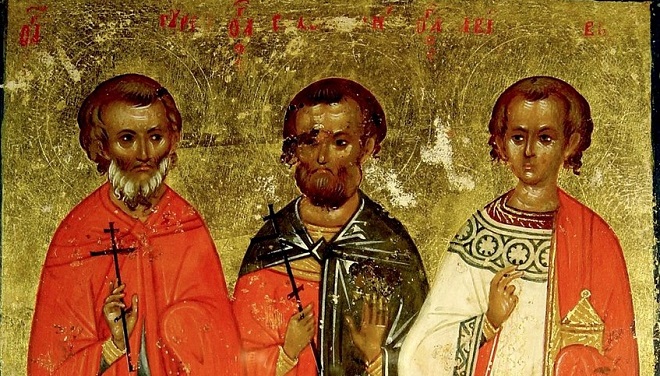

Of these most illustrious Martyrs of the city of Edessa in Syria, Guria and Shamuna contested during the reign of Diocletian, in 288; after many tortures, they were cast into prison, then beheaded. Saint Habib, a deacon, contested in the days of Licinius, in the year 316, and was burned alive; he was buried with Saints Guria and Shamuna. The three have one common feast, and it is always together that they are portrayed in icons and invoked by the faithful. On account of a renowned miracle they worked, they are invoked for help in marital difficulties. A certain Goth had come with the Roman army to Edessa and was quartered in the house of a pious widow named Sophia. The Goth asked Sophia for the hand of her daughter, Euphemia; after resisting for a long time, Sophia at last agreed. When it was time for the army to return home, Sophia made the Goth vow by the power in the holy Martyrs Shamuna, Guria, and Habib, to keep Euphemia as the apple of his eye. As he was nearing his home, however, the treacherous man revealed to Euphemia that he already had a wife. Euphemia was compelled to serve the Goths wife, who dealt with her mercilessly. After extreme sufferings, which included being sealed alive in a tomb and left there to die, Euphemia was miraculously conveyed to Edessa, to the very shrine of the holy Martyrs whose surety they had taken, and was reunited with her mother through their holy prayers.
Gurias and Samonas were prominent citizens of Edessa. During one of the persecutions of Christians, they hid outside the city and lived in fasting and prayer, encouraging true believers who came to them for counsel. However, they were captured and brought before the judge, who threatened them with death if they did not submit to the imperial decree demanding idol worship. These holy martyrs of Christ answered him: “If we submit to the imperial decree, we will perish, even if you don’t kill us.” After cruel torture, they were thrown into prison, where they remained from August 1 to November 10, enduring hunger, darkness and pain. They were then led out and again tortured, but since they remained unwavering in the Christian Faith, they were condemned to death and beheaded in the year 322 A.D., during the reign of the wicked Emperor Licinius. Later Abibus, a deacon in Edessa, suffered tortures for Christ his Lord and gave his spirit to God while in the flames. His mother took his body, miraculously intact, from the fire and buried it in a grave with the relics of St. Gurias and St. Samonas. When the persecution ceased, Christians built a church in honor of the three martyrs, Gurias, Samonas and Abibus, and placed their miracle-working relics in a common reliquary. Of the numerous miracles of these wonderful saints of God, the following is especially outstanding: A widow in Edessa had a young daughter who was to marry a Gothic soldier serving in the Greek army. As the mother feared for her daughter’s safety if she were to live far away, the Goth swore on the grave of the holy three martyrs that he would do no evil to the maiden, but would take her as his lawful wife, as he had already sworn that he was not already married. In reality, he did have a wife, and when he took the young maiden to his country he kept her, not as his wife but as a slave, until his lawful wife died. He then agreed with his kinsmen to bury his living slave with his dead wife. The girl tearfully prayed to the three holy martyrs to save her, and they appeared to her in the grave, and took her in an instant from the land of the Goths to Edessa, to their church. The following day when the church was opened, they found the young maiden by the tomb of the saints of God, and learned of her miraculous deliverance.
Apolytikion of Martyrs Gouria, Shamuna, and Habib
Plagal of the First Tone
Since Thou hast given us the miracles of Thy holy Martyrs as an invincible battlement, by their entreaties, scatter the counsels of the heathen, O Christ our God, and strengthen the faith of Orthodox Christians, since Thou alone art good and the Friend of man.
Kontakion of Martyrs Gouria, Shamuna, and Habib
Second Tone
Ye gained from on high * much grace, O wise, all-lauded Saints; * and thus, ye protect * all them found in ordeals and trials; * for this cause, O Martyrs, did ye save a young woman from bitter death, * in that ye are in very truth * the glory of Edessa and joy of all.
Source: oca.org / goarch.org / westserbdio.org

